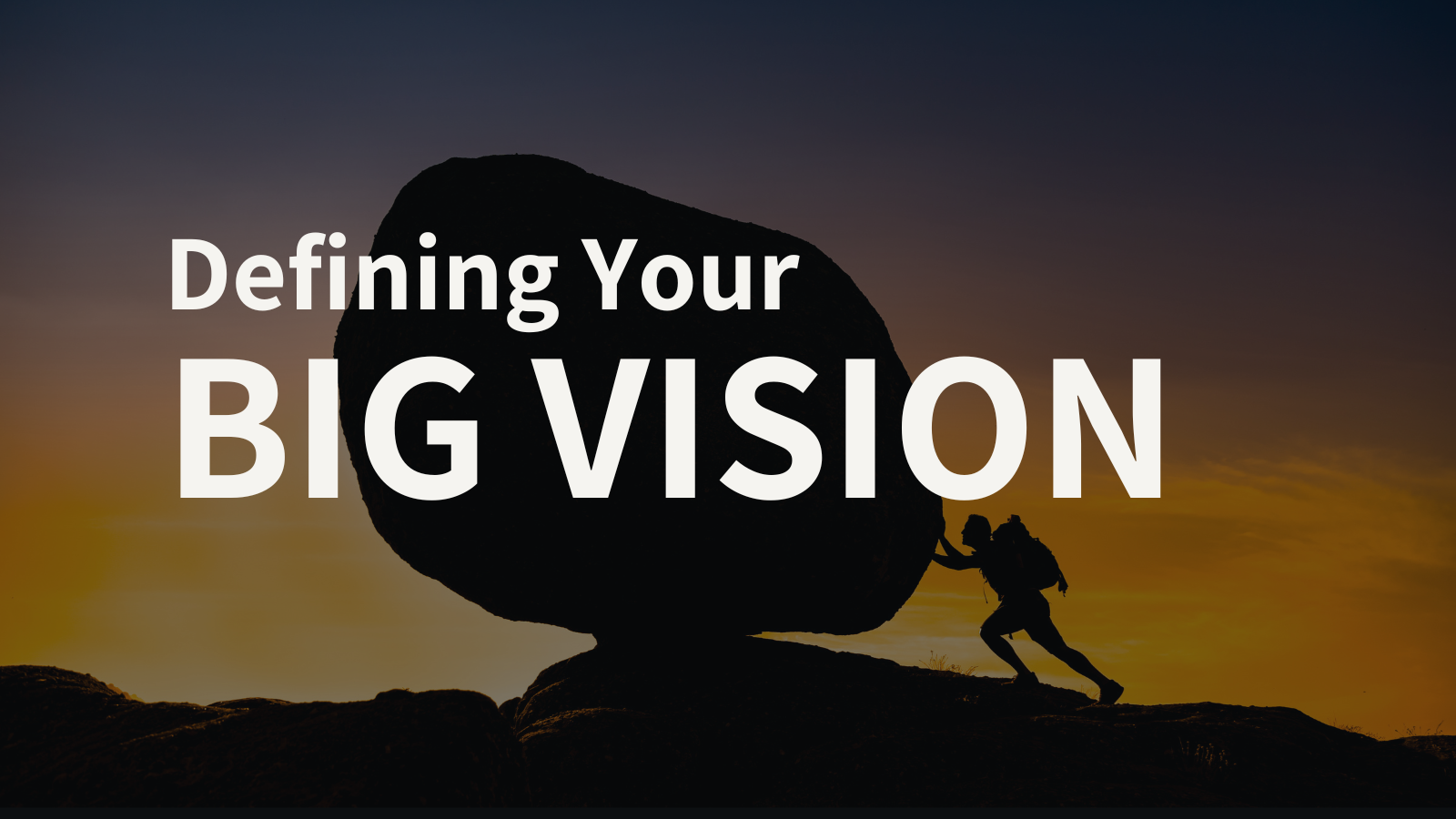Defining a Big Vision

When I started my Draft.dev in 2020, my goal was to build a business that allowed me to take a month off at a time.
It sounds simple, but most small business owners never reach that point. Most are notoriously overworked and underpaid.
In 2021, I set myself up to take a week off completely. I blocked off my calendar, set up an autoresponder, and spent a week completely unplugged from my business. It was great, and it really helped the team see that they didn’t need me as much as they thought.
When we found out we were having our second baby in 2022, I started to plan my month off. By that point, we had a salesperson, Account Director, and Operations Director who could handle pretty much everything without me. In October, 2022, I put my autoresponder on, and checked out again.
So, What’s Next?
Most ambitious people think that reaching your goal will free you, but that’s not really what happens.
I was running a relatively successful small business that I could take a whole month off from at a time, but more than ever, I felt like I wanted to do something more.
First, I thought about selling it and taking some time off. But, honestly, what would I do with a year or two off? Probably start something new, so why take two steps back?
So instead, I went the other direction: what if I thought bigger?
I decided to come up with a goal that was big enough and ambitious enough that it would take at least a decade to achieve. I decided that rather than selling assets in my 30s, I would focus on using leverage to buy up more assets.
In the words of The Alchemist, I came up with my Personal Legend:
I want to own 10+ businesses doing a total of $100 million or more in revenue in 10 years.
So, how did I reach that specific, ambitious goal? Let me share my journey:
1. I Defined My “Why?”
After reflecting on the times in my life when I felt most fulfilled, I realized that:
- I love learning
- I have a short attention span
So I knew my 10-year vision would need to afford me opportunities to continue learning and growing every year.
Paul Graham hints at the strength of curiosity and interest in his essay, How to do Great Work:
The work you choose needs to have three qualities: it has to be something you have a natural aptitude for, that you have a deep interest in, and that offers scope to do great work. - Paul Graham, Found of Y Combinator
This quote also hints at my next point…
2. I Reflected on My Strengths
I’ve always believed that I’ll achieve 100x more if I lean into my strengths rather than paper up my weaknesses.
I’m an activator with strong communication and organization skills.
Knowing this, my role should be setting a path and delegating work to more detail-oriented people. That sounds easy, but it’s hard to do without a specific vision in mind.
Good CEOs are good delegators, but if you take it up another level, investors are even better at putting key people in place and getting out of the way. As I reflect on the next 10 years, I know I need to learn to think more like an investor and less like a small business CEO.
3. I Set Specific Numbers
Most people don’t like to set specific numbers or timelines to their goals because it means they might fail by not reaching them.
But, I started working with a coach last year, and one thing he kept pushing me to do was to define my vision in specific numbers. It’s uncomfortable because I might not hit these numbers, but I know that having them is valuable.
I think the best goals have numbers that are both scary (“how will I ever hit this?”) and exciting (“wouldn’t it be cool if I did this?”).
4. I Started Sharing My Vision 🗣️
“When you want something, all the universe conspires in helping you to achieve it.” - The Alchemist
Belief is powerful, but it’s even more powerful when you can convince others to join you.
So, I started being open about what I wanted to do. Immediately, I attracted supporters who offered introductions, advice, leads, and partnerships.
I even found a partner who joined me and gave me the support I needed to make the first acquisition.
5. I Modeled the Path to Success
There’s a huge difference between having a big vision and making a concrete plan that gives you the first step toward realizing that vision.
So, I built a model, broken down by year, that showed me how quickly I’d have to move and the milestones I’d need to hit to make this happen.
Even if reality looks nothing like my model, the fact that there is a model makes the whole thing seem real. This model made my first step clear (buy another company) and it gave me the confidence to tell others that this really is possible.
Entrepreneurs with Vision Go Further Than Those Without
In meeting hundreds of entrepreneurs with varying degrees of success, I’ve found the most successful and fun to talk to are the ones who have a big vision they’re after.
You might think building a 10-year vision would be limiting, but the opposite is true. Having a vision gives me clarity when making decisions while allowing me to be flexible about how I’ll actually achieve the long-term goal.
But, setting a big vision is still scary and hard.
If you’re struggling to define a big vision for your business or life, I’d love to hear how I can help. DM me on Twitter to continue the conversation.
